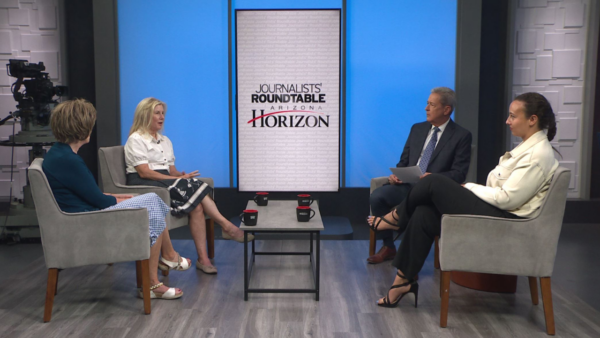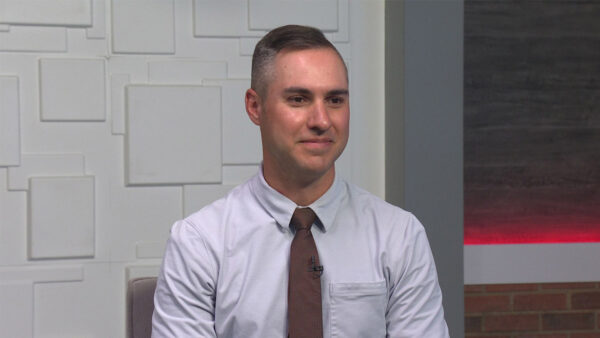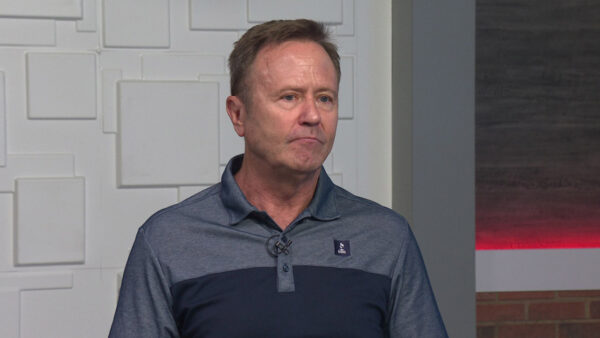Hear about past voting trends and ways to encourage people to vote as we near the Arizona presidential preference election. Lattie Coor, chairman and CEO of the Center for the Future of Arizona, will talk about that and perceptions of voters.
Ted Simons: How much the vote at Arizona's primary truly reflects what Arizonans want to see from government and its elected officials? We asked Lattie Coore, chairman and CEO of the future of Arizona. Good to see you again.
Lattie Coore: Good to see you.
Ted Simons: How is this -- important is this primary process?
Lattie Coore: I think it depends this current year in what happens between now and the 22nd. There are two big ones coming up the week before in Ohio and in Florida. Those could be game changers. I think the extent to which Bernie Sanders moved ahead in an unexpected way in Michigan may increase the interest in the election itself. So it's hard to say. The Arizona presidential preference primary, however, doesn't harvest all of the registered voters in an easy way because Arizona today is 1 million Democrats, 1.1 million Republicans. 1.2 million Independents. Independents in the presidential preference election have to take a step to join one of the parties. It so it doesn't come automatically. The ballots don't come. They have to join one of the parties. They then get that ballot and can vote. Then often they then after the election go back to an independent status. Any step that people have to take tends to reduce turnout.
Ted Simons: It does indeed. Historically how have we done as far as primaries and turnout?
Lattie Coore: Primaries in general we have not done a very good job at all. We're in the bottom quintile in the nation. It has a very profound effect particularly on those races that are decided in the primary. For statewide elections and for state legislative elections that's about 80% of the seats. In those elections, the average over the last decade of people turning out is somewhere between 20 and 27%. But we have to remember that's of the registered voters. If you take the eligible voters, which is another 30%, the 27% drops quickly to a little under 20%. If you have two candidates for one seat, which is common, that means that less than 10% of the voters in that district will determine the outcome.
Ted Simons: The Center for the Future of Arizona with this project, you've done so much research on what people want, what they say they want. Why is it that that turnout is so low and that people seem to always say, I'm not getting what I want?
Lattie Coore: I think it's partly the fact throughout our history we have been populated by two-thirds of the people who have been born elsewhere and have moved here. The good news is they want to be here. They come here. But the roots that get developed, the habits that get developed, the connections that get developed have not been as strong here as they should be. And as we believe, it's essential for the future of Arizona that they are. I think also this issue of Independents and how do they vote, how can they vote? They will get both parties' ballots in the regular primary. But it still seems awkward for them to participate.
Ted Simons: Confusing.
Lattie Coore: It is confusing.
Ted Simons: Some of your studies have shown less than 10% think their interests are represented by elected officials. Less than 10% have strong confidence in the government. Fewer than 50% are confident that the government can handle problems. These can't all be people from Indiana and California. There's a disconnect.
Lattie Coore: They are not, and the puzzling thing is why don't they step forward? Pay attention to the issues, register, vote, and you can make a difference. In a legislative seat 1,000 additional new votes can make a significant difference in the outcome, so it's possible to do. Possible to have a greater influence and we are nonpartisan. We believe that ought to represent what the Arizonans believe in general, but it doesn't work unless they get out and vote itself. So we're working on a project now through civic engagement, getting people more deeply involved in their community. That's a place to start. They immediately begin to understand there are some things they need to do including registering and voting and communicating with their elected officials.
Ted Simons: Do people say voting is too difficult?
Lattie Coore: In some instances they do. I think the preferential primary is one. I think there are barriers in terms of the date of the election. But that in my view shouldn't be an excuse. People can and should do it.
Ted Simons: Last question, I'm asking almost everyone that comes on the set this question because I find it fascinating, Donald Trump -- how do you explain it?
Lattie Coore: I read a very interesting piece the other day. I don't know how valid it is but it noted that in times of stress when there's very substantial turnover in the life-style, in the setting in which one lives, and when there's an element of fear, particularly fear of people from outside the country coming here or people from outside the country coming as terrorists, there is a desire for a very strong leader. I don't want to use the language that they used technically, authoritarian, but it is whatever it takes, let's get somebody that's going to come in and provide us protection no matter what. That's one person's opinion. Vino idea beyond that. I think I'm as puzzled and surprised as many other voters.
Ted Simons: All right. Good to see you again. Thanks for joining us.
Lattie Coore: My pleasure. Thanks.
Ted Simons: Wednesday on "Arizona Horizon," we'll have full results and analysis of Arizona's presidential preference election. And we'll see how the legislature continues to crack down on cities enacting their own laws and policies. That's at 5:30 and 10:00 on the next "Arizona Horizon." That is it for now. I'm Ted Simons. Thank you so much for join ugh us. You have a great evening.
"Arizona Horizon" is made possible by contributions from the friends of 8, members of your Arizona PBS station. Thank you.
Lattie Coor: Chairman and CEO of the Center for the Future of Arizona























